My children were born and grew up here in California. Barbara and I loved, nurtured, fed, and educated them to the best of our ability. Meanwhile there were places around the world where children of a comparable age were being raised under entirely different circumstances. One of these extreme cases was in Cambodia. Here a vastly dissimilar environment challenged young and old alike. How different from what we are used to.
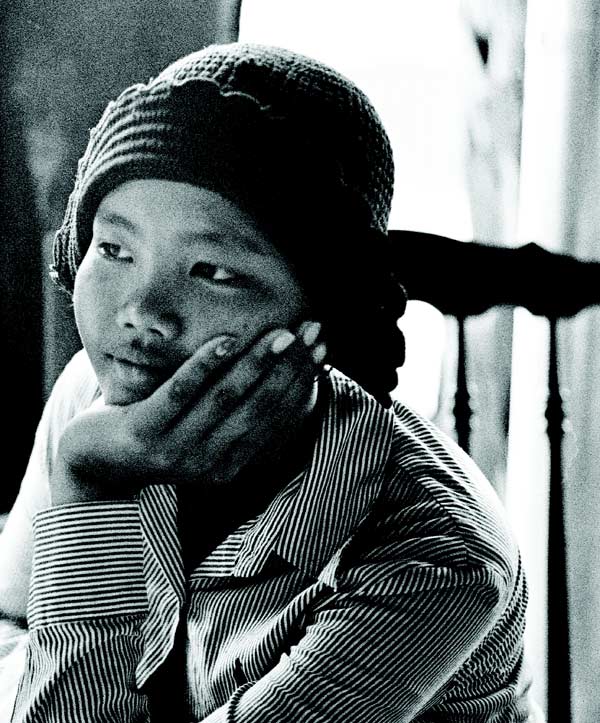
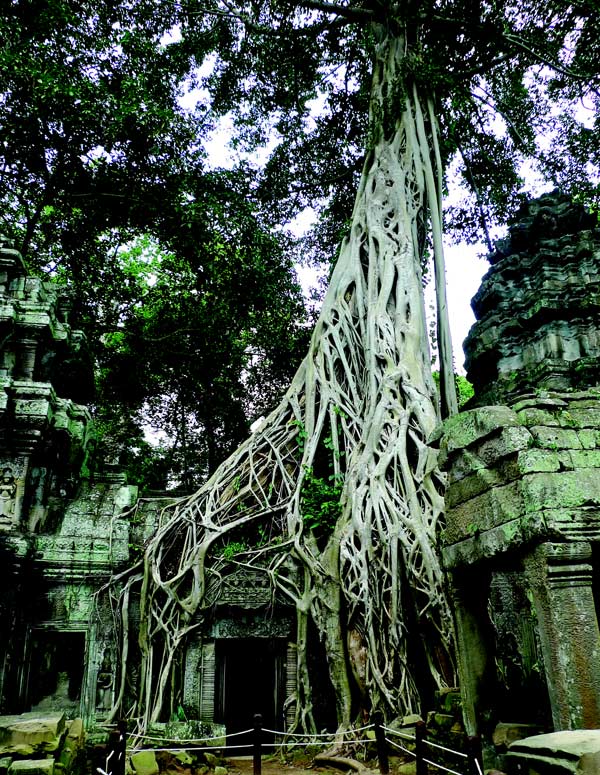
We landed in Siem Reap, Cambodia just as the sun was touching the western horizon. It was near the end of February, and the rains were still a month or two off. Siem Reap is the gateway to the Angkor community. Angkor Wat is that huge collection of ruins that was rediscovered in the nineteenth century and has since been declared a UNESCO heritage site. It is easy to see why. This vast temple area covers over forty acres and houses seven libraries. These libraries are actual stone walls engraved in delicate detail with historic, political, and religious stories. If you have ever considered a visit to this magnificent place, I strongly encourage you to go. The hotel facilities in this area are vast and of a very high caliber. English is spoken in most places, the prices are reasonable, and the people are anxious to help. But back to my story.
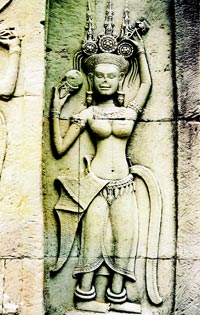
Barb and I settled in for the night but were up bright and early awaiting our next adventure. Right on time, Vandy arrived and we were off to visit the aged ruins.
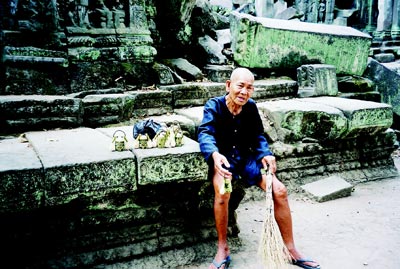
As we walked the Angkor Wat grounds I happened upon some strange looking black pods, which littered the ground. They were about nine inches long and one inch wide and at this stage quite dried and ugly. When you broke them open they contained a bean-like object about the size of a lima bean. They were completely new to me, and I asked Vandy what they were used for. A strange smile crossed his lips and he said, “Yes, if one is desperate they are edible. They come from the tree we call the elephant foot tree. As you can see where the tree trunk meets the ground it resembles an elephant’s foot.” And indeed it did. I picked up another pod and tried to imagine eating this ugly thing, when Vandy continued. “We ate only these pods and the rice we grew for almost two years,” he began, and then shared this story with me.
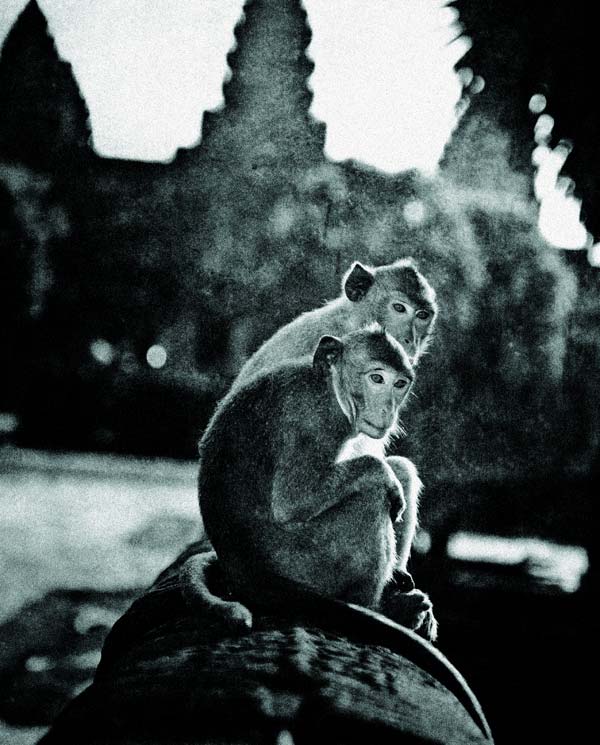
In 1975 the Cambodian government, then ruled by Lon Nol, was overthrown by a harsh new communist dictator named Pol Pot and his rag-tag group of revolutionaries. They called themselves the Khmer Rouge, or Red Cambodians. Pol Pot initiated a program of agrarian reform, believing that a return to basic agriculture would provide happiness and tranquility for all of his subjects. He was a disciple of Mao Tse Tung, then in power in China, and believed that evil could be scourged from the country by eliminating all traces of modern conveniences. This “elimination” included individuals with any form of education who might challenge his thinking. My friend Vandy was about nine years old at the time and lived near Siem Reap. Vandy’s father was a teacher and therefore considered educated—hence a threat to reform. The father was made part of a work team and forced to work himself to death in a labor camp. Vandy was separated from his mother and forced to join an agrarian rice farming team far from his home. Here he worked from sunrise until dark, tending the rice as part of the team. There was no love, no recreation, and no spare time for play.
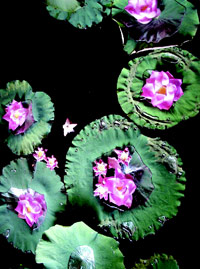
The history of this debacle goes on. In 1995, Vietnam – annoyed by a major flow of Cambodian refugees – invaded Cambodia and with the help of the locals drove Pol Pot into the highlands. The United States was confused as to how to react, because here two of our dreaded enemies, both communist states, were at one another’s throat. The occupation lasted until 1997 when the Vietnamese pulled out, and the old king, who had been in exile returned.
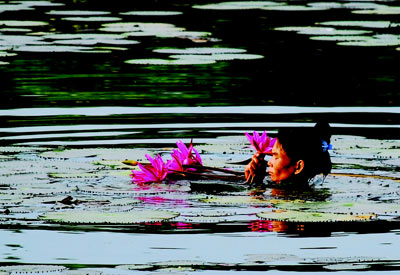
Vandy inherited his father’s skill for language and exploited it in a European-run school. English came easy for him, as did Chinese, Japanese and French. He soon found he could make a comfortable living, guiding tourists around the area that he knew so well from his childhood. He was hired by a local tourist agency and because of his language skills became a star performer for them.
The story ends well. Both my son and Vandy are successful men in their chosen professions. The routes to this success, however, were vastly different. We here in America enjoy a great deal of freedom and opportunities for happiness that are denied in other parts of the world. We need to appreciate this situation, for so much of our life depends upon chance.